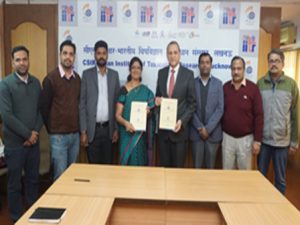Initiative to find reasons behind prevalence of kidney disease in Andhra Pradesh
Uddanam region of Andhra Pradesh shows a high incidence rate of Chronic Kidney Disease.

As compared to Indian average of 10-15 per cent Chronic Kidney Disease of unknown etiology (CKDu) cases Uddanam region of Andhra Pradesh shows a high incidence rate ranging between 30-45 per cent of population been affected. It is being found there are high incidences of CKDu prevalent in that region. The cause of these incidences is unknown.
To understand the problem that affects the kidney health of this population a Memorandum of Understanding (MoU) was signed between Council of Scientific and Industrial Research-Indian Institute of Toxicology Research (CSIR-IITR), Lucknow and Great Eastern Medical School and Hospital (GEMS and H), Srikakulam, Andhra Pradesh. Under this MoU, both the institutions have agreed to jointly work on identifying the cause for high incidence of CKDu.
Also Read : Kidney Disease Is Already An Epidemic Dr Rohini Prashar
GEMS and H, Srikakulam and CSIR-IITR, Lucknow will jointly work to collect samples of food and water from Uddanam region affected with CKDu and analyze them for cause of kidney diseases. Blood and urine samples of affected individuals will also be collected for identifying the cause for CKDu in the region. The study will leads to formulation of guidelines and suggest preventive measures to alleviate root causes of CKDu in the region.
Chronic kidney disease basically refers to that the kidneys are damaged and can’t filter blood the way they should. The affected kidney function gets slower it can cause wastes to build up in the body. The damage happen with a slower pace and it takes long period of time that is why the disease is called chronic. It can leads to other health problems. High incidence of CKD leads to tremendous suffering of affected people and economic burden on the population. Frequent dialysis and transplant are the only options available to patients as the damage is irreversible after a particular stage. (India Science Wire)
